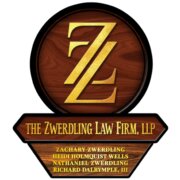Best Property Insurance Lawyers in Kansas
Share your needs with us, get contacted by law firms.
Free. Takes 2 min.
Or refine your search by selecting a city:
List of the best lawyers in Kansas, United States
About Property Insurance Law in Kansas, United States
Property insurance in Kansas protects homeowners, renters, businesses, and landlords from financial loss resulting from damage to properties due to perils such as fire, theft, storms, or vandalism. These policies typically cover structures, personal belongings, and may include liability coverage for accidents occurring on your property. Kansas property insurance law establishes requirements for insurers, defines coverage obligations, and sets the rules for resolving disputes between policyholders and insurance companies.
Why You May Need a Lawyer
Although many property insurance matters are routine, there are situations where hiring a lawyer becomes essential. Common scenarios include:
- Your claim is denied or underpaid by your insurance company
- You disagree with the insurer’s assessment of property damage or repair costs
- Your insurer delays or fails to respond to your claim on time
- You face accusations of misrepresentation or fraud
- You are involved in a dispute over policy coverage or interpretation
- Your claim involves complex issues, such as total loss, appraisal demands, or multiple parties
- You suspect bad faith practices by your insurance company
Local Laws Overview
Kansas property insurance law is governed by both state and federal statutes and regulations. The Kansas Insurance Department oversees regulation of insurance carriers and policy provisions. Some key aspects of local law include:
- Kansas requires all property insurers to operate under the Kansas Insurance Code (K.S.A. Chapter 40)
- All policyholders have the right to fair claims handling, timely communication, and transparent decision-making
- Policies must clearly indicate coverage limits, deductibles, and exclusions
- Kansas has statutes on replacement cost versus actual cash value, which affect how claims are paid out
- Time limits apply to filing claims and lawsuits against insurers, commonly referred to as statutes of limitations
- The Kansas Consumer Protection Act can apply if insurers engage in deceptive or unfair practices
- Mediation and appraisal processes may be required before litigation for certain claim disputes
Frequently Asked Questions
What does property insurance typically cover in Kansas?
Standard property insurance policies in Kansas usually cover damage from fire, storms, theft, vandalism, and certain water damages. Floods and earthquakes may require special endorsements or separate policies.
What is the difference between replacement cost and actual cash value?
Replacement cost pays the amount needed to replace damaged items with new ones of similar kind and quality, while actual cash value pays the replacement cost minus depreciation. Your policy should state which method applies.
Can my property insurance provider deny my claim?
Yes, insurers can deny claims for reasons such as non-covered perils, policy exclusions, insufficient documentation, or alleged misrepresentation. You have the right to appeal or dispute denials.
What should I do if my property insurance claim is underpaid?
Start by reviewing your policy and the insurer’s explanation. You can request a detailed breakdown, provide additional evidence, or hire an independent appraiser. Legal counsel can help if you disagree with the settlement.
How long do I have to file a property insurance claim in Kansas?
Most policies require prompt notice, typically ranging from a few days to a few months after the loss. Lawsuits related to property insurance disputes generally must be filed within 1-5 years, depending on the policy and nature of the claim.
Are insurers required to investigate claims within a certain timeframe?
Yes, Kansas law requires insurance companies to promptly acknowledge, investigate, and process claims. Unreasonable delays can be considered unfair claims practices.
Can I sue my property insurance company for bad faith in Kansas?
Yes, if your insurer unreasonably denies coverage, fails to investigate, or otherwise acts in bad faith, you may have grounds for a legal claim and could recover damages in addition to your original loss.
Do insurance policies cover damage from natural disasters like tornadoes?
Most property insurance policies in Kansas cover tornado and windstorm damage, but exclusions may apply for specific events. Flood and earthquake coverage typically require separate policies.
Does Kansas have laws protecting consumers from unfair insurance practices?
Yes, the Kansas Insurance Code and the Kansas Consumer Protection Act protect consumers from deceptive, unfair, or bad faith actions by insurers. Complaints can be filed with the Kansas Insurance Department.
How can I dispute my insurer’s estimate for repairing my property?
You can provide your own estimates, ask for an appraisal or mediation, or hire experts. Legal assistance can help negotiate or litigate disputes over repair costs or coverage.
Additional Resources
If you have questions or issues regarding property insurance in Kansas, consider reaching out to the following resources:
- Kansas Insurance Department: The primary state agency for insurance consumer assistance, complaints, and regulatory guidance
- Legal Aid of Kansas: Provides legal support for qualifying low income residents who have insurance disputes
- Kansas Bar Association: Offers lawyer referral services and information about legal rights in insurance matters
- Federal Emergency Management Agency (FEMA): Assistance with federal disaster insurance programs such as the National Flood Insurance Program
- National Association of Insurance Commissioners (NAIC): Consumer educational materials and tools for comparing insurers
Next Steps
If you are facing a property insurance issue in Kansas and need legal advice, follow these steps:
- Collect all relevant documents, including your insurance policy, claim forms, correspondence, photos, and repair estimates
- Contact your insurance company and try to resolve the dispute directly
- If unresolved, reach out to the Kansas Insurance Department for guidance or to file a complaint
- Consult with a Kansas licensed attorney experienced in property insurance law for case evaluation
- Explore mediation or appraisal procedures if available under your policy
- If necessary, consider legal action within the applicable deadlines set by law and your policy
Lawzana helps you find the best lawyers and law firms in Kansas through a curated and pre-screened list of qualified legal professionals. Our platform offers rankings and detailed profiles of attorneys and law firms, allowing you to compare based on practice areas, including Property Insurance, experience, and client feedback.
Each profile includes a description of the firm's areas of practice, client reviews, team members and partners, year of establishment, spoken languages, office locations, contact information, social media presence, and any published articles or resources. Most firms on our platform speak English and are experienced in both local and international legal matters.
Get a quote from top-rated law firms in Kansas, United States — quickly, securely, and without unnecessary hassle.
Disclaimer:
The information provided on this page is for general informational purposes only and does not constitute legal advice. While we strive to ensure the accuracy and relevance of the content, legal information may change over time, and interpretations of the law can vary. You should always consult with a qualified legal professional for advice specific to your situation.
We disclaim all liability for actions taken or not taken based on the content of this page. If you believe any information is incorrect or outdated, please contact us, and we will review and update it where appropriate.
Browse property insurance law firms by city in Kansas
Refine your search by selecting a city.














